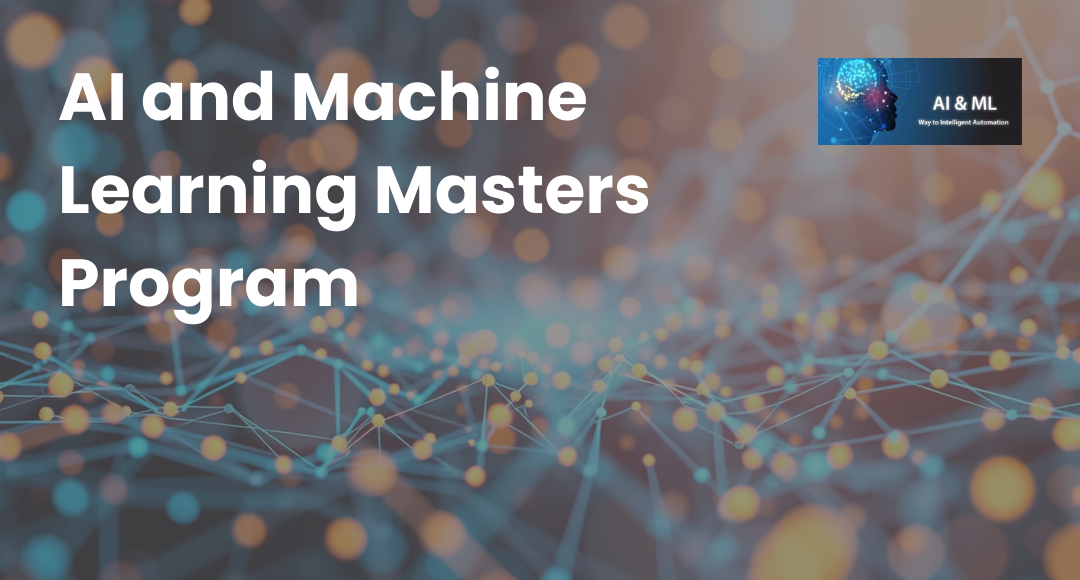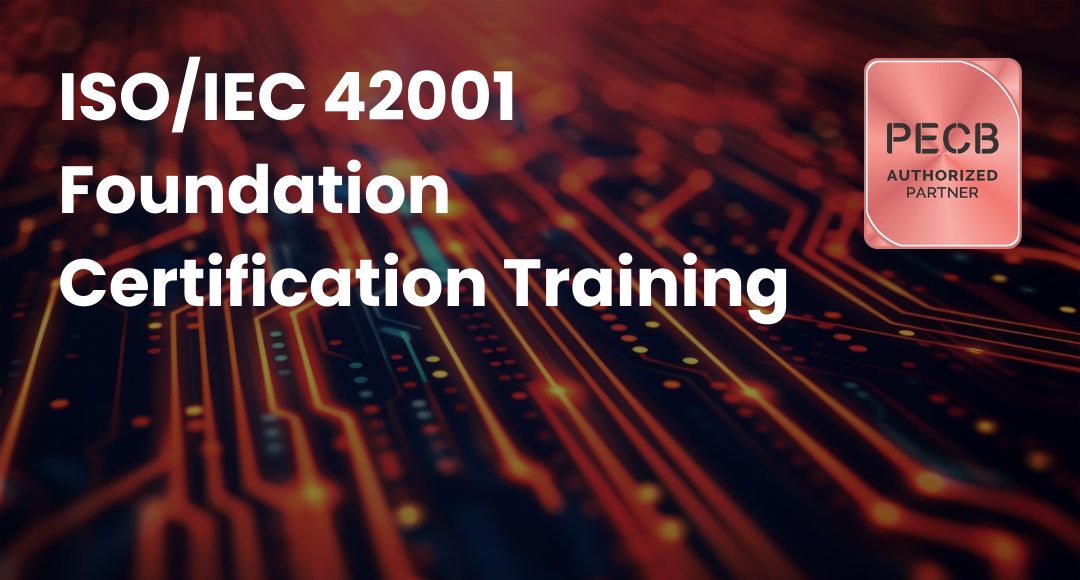What are the Prerequisites for Machine Learning?
-
 By Sushmith
By Sushmith - Published on Feb 7 2023

Table of Contents
Introduction
With these vastly growing technologies of machine learning and artificial intelligence, every engineer and every computer science enthusiast would have wanted to become a Machine Learning Engineer at some point in their lives.
Now that you are here, you might as well have had the thought of "How to Become a Machine Learning Engineer?"
As clear as it already is, machine learning is one of the most highly practiced and in-demand technologies of our time and for the future. For all the beginners here, it is very important that you clearly understand the importance of the prerequisites for practicing machine learning.
The science of machine learning is a subfield of the science of Artificial Intelligence. Machine learning deals with tasks that are related to human behaviors. To solve problems or perform tasks, machines are equipped with artificial intelligence. This allows computer machines to perform operations and solve tasks similar to how humans do.
Acquiring the best Machine Learning Certification will help you master certain ML tools and concepts. This aids in the development of more AI-integrated programs capable of making decisions and performing tasks on their own.
To start learning and practicing machine learning, it is recommended that you review the classification in Machine Learning for a better understanding of this article.
Now, let’s get started with the prerequisites for machine learning.
Necessary Prerequisites for machine learning
To get professionally certified with a machine learning master’s certification program, candidates do not necessarily need to have skills in prior practices of the field or what so ever.
Since the only base factor to practice in this domain is to have a keen and skeptic idea on using programing languages, the key factor that aids better understanding is to first understand the basic concept that structures the algorithms.

To get started with machine learning, one must be familiar with the following concepts that drive a better understanding of designing machine learning algorithms:
Calculus is the base when it comes to writing algorithms for learning packs. The part where deep learning comes into play is where integral calculus comes into play. This allows the machine to understand the role of the algorithm for the statistical features supporting machine learning features. The training of algorithms makes use of multivariate calculus. You should study and apply the crucial ideas of derivatives, divergence, curvature, and quadratic approximations.
Statistics are something that is used to obtain an outcome from a result. The data fed to the machine is converted into understandable information that is understood by the machine. Statics help machines learn the concept and compare the values and results of different data sets. Algorithms designed using statistics help obtain important information from samples of raw data instead of making use of the entire dataset.
Probability, as you may already know, helps in predicting the occurrence of an event. As for designing an algorithm for machine learning, probability would be the foundation since it allows you to reason about the likelihood of an event happening or not happening. Machine learning algorithms are designed using probability to ensure the application of a deep understanding. This will also aid in designing learning algorithms that are capable of making decisions.
Linear algebra is another important prerequisite for machine learning processing. Here, linear algebra helps in providing a better processing environment for machine learning algorithms when they deal with graphical information like images, videos, and audio data. Linear algebra also allows machine learning algorithms to understand and unlock the meaning of high-dimensional data sets.
The following are a few concepts of linear algebra that one must learn about to practice machine learning and to understand how machine learning works:
– Symmetric Matrix.
– Matrix multiplication.
– Machine learning prediction
– Principal Component Analysis (PCA)
Programming languages are a very essential concept to first practice before starting to learn machine learning. As the machine learning algorithms are executed in code, knowledge of programming languages like Python or R serves as a foundation.
It is advisable to acquire a minimum of one programming language because it will significantly improve your grasp of the internal dynamics of machine learning. You should master a programming language that will make it simple to build machine learning algorithms, though.
A few programming languages are listed below:

Python:
Python is a popular language used in machine learning, particularly amongst novices, because of its simple syntax, constructed features, and robust package support. It includes the most supported libraries, with which the Python Package Index (PyPI) gives you access to more than 200,000 packages. Additionally, the Python learning community is quite supportive. With the aid of certain tools, machine learning with Python becomes more applicable around foundational concepts.
Python will teach you:
– NumPy for performing mathematical computations
– TensorFlow for a deep learning framework.
– The deep learning software PyTorch
– Computer vision with OpenCV and Dlib
– classifiers and regression techniques with scikit-learn
But Python struggles with multithreading and is comparatively slower than other languages.
R:
As popular as Python is, R is also a prerequisite for AI and machine learning. Many machine learning applications use R as their implementation language. Graphs and respectable library support are features of the program.
Some of the important packages that R supports are listed below:
Regression and classification-based procedures with Kernlab and Caret
DataExplorer for analyzing data
Rpart and SuperML.
Workflows for machine learning using MLR3
Data visualization with Plotly and ggplot
Unlike Python, R can be challenging for beginners and is also comparatively slower than C++.
C++:
Games and complex systems are known to use C++ very frequently because of its property of accessibility. The preferred programming language for creating libraries is Java, which helps develop a solid understanding of logic construction.
Machine learning requires the following prerequisites, which C++ supports:
For deep learning, consider TensorFlow with Microsoft Cognitive Toolkit (CNTK).
For computer vision, employ OpenCV
For machine learning, use Shogun and mlpack.
For neural networks, utilize OpenNN, FANN, and DyNet.
Due to its syntax-oriented approach, which can be challenging for novices, C++ has some drawbacks. Additionally, it has poor library support.
Conclusion
One of the most widely used and anticipated technologies of the present and the future is machine learning. Novices must fully comprehend the significance of the prerequisites for practicing machine learning by being familiar with the workings of the data.
This blog discusses some of the key prerequisites for machine learning, together with the advantages and disadvantages of some of the most popular programming languages for the purpose.
In conclusion, statistics, probability, calculus, linear algebra, and programming experience are essential for machine learning.
Calculus offers optimization methods, linear algebra provides solutions that can handle massive data sets, probability enables us to forecast the possibility of events, and statistics enables us to draw conclusions from a sample of data sets.
Enrol now to our AI and Machine Learning Master’s Program and Data Science Master Program. Get professionally certified and boost your career as an AI and ML expert.
Do visit Sprintzeal's official website or Sprintzeal's all courses page to explore more related courses or any courses of your preference.
Candidates can also request a call back or chat with our course expert to get instant help.
Subscribe to our Newsletters
Popular Programs
Artificial Intelligence Certified Executive (AICE) AI3090
Live Virtual Training
- 4 (650 + Ratings)
- 70k + Learners
Artificial Intelligence Foundation (AIF) AI3010
Live Virtual Training
- 4 (650 + Ratings)
- 33k + Learners
Certified Artificial Intelligence Expert (CAIE) AI3050
Live Virtual Training
- 4.9 (650 + Ratings)
- 72k + Learners
Certified Computer Vision Expert (CCVE) AI3080
Live Virtual Training
- 4.2 (650 + Ratings)
- 47k + Learners
Certified Deep Learning Expert (CDLE) AI3060
Live Virtual Training
- 4.9 (650 + Ratings)
- 63k + Learners
Certified Machine Learning Associate (CMLA) AI3020
Live Virtual Training
- 4.6 (650 + Ratings)
- 16k + Learners
Certified Natural Language Processing Expert (CNLPE) AI3070
Live Virtual Training
- 4.3 (650 + Ratings)
- 10k + Learners
Trending Posts
How AI is quietly changing how business owners build websites
Last updated on Jul 17 2025
Audioenhancer.ai: Perfect for Podcasters, YouTubers, and Influencers
Last updated on Jul 15 2025
Integrating AI to Personalize the E-Commerce Customer Journey
Last updated on May 1 2025
11 Undetectable AI Writers to Make Your Content Human-Like in 2026
Last updated on Jun 5 2025
Data Science vs Artificial Intelligence - Top Differences
Last updated on Jan 16 2023
MusicCreator AI Review: The Future of Music Generation
Last updated on Jul 24 2025
Categories
- Other 73
- Agile Management 49
- Cloud Computing 58
- Project Management 174
- Data Science 68
- Business Management 88
- Digital Marketing 82
- IT Service Management 29
- Programming Language 60
- AI and Machine Learning 86
- IT Security 113
- Quality Management 78
- IT Hardware and Networking 26
- Microsoft Program 5
- Workplace Skill Building 15
- Risk Management 9
- Information Security 8
- Leadership and Management 9
- Corporate Training and Development 1
Trending Now
Consumer Buying Behavior Made Easy in 2026 with AI
Article7 Amazing Facts About Artificial Intelligence
ebookMachine Learning Interview Questions and Answers 2026
ArticleHow to Become a Machine Learning Engineer
ArticleData Mining Vs. Machine Learning – Understanding Key Differences
ArticleMachine Learning Algorithms - Know the Essentials
ArticleMachine Learning Regularization - An Overview
ArticleMachine Learning Regression Analysis Explained
ArticleClassification in Machine Learning Explained
ArticleDeep Learning Applications and Neural Networks
ArticleDeep Learning vs Machine Learning - Differences Explained
ArticleDeep Learning Interview Questions - Best of 2026
ArticleFuture of Artificial Intelligence in Various Industries
ArticleMachine Learning Cheat Sheet: A Brief Beginner’s Guide
ArticleArtificial Intelligence Career Guide: Become an AI Expert
ArticleAI Engineer Salary in 2026 - US, Canada, India, and more
ArticleTop Machine Learning Frameworks to Use
ArticleData Science vs Artificial Intelligence - Top Differences
ArticleData Science vs Machine Learning - Differences Explained
ArticleCognitive AI: The Ultimate Guide
ArticleTypes Of Artificial Intelligence and its Branches
ArticleWhat is Hyperautomation? Why is it important?
ArticleAI and Future Opportunities - AI's Capacity and Potential
ArticleWhat is a Metaverse? An In-Depth Guide to the VR Universe
ArticleTop 10 Career Opportunities in Artificial Intelligence
ArticleExplore Top 8 AI Engineer Career Opportunities
ArticleA Guide to Understanding ISO/IEC 42001 Standard
ArticleNavigating Ethical AI: The Role of ISO/IEC 42001
ArticleHow AI and Machine Learning Enhance Information Security Management
ArticleGuide to Implementing AI Solutions in Compliance with ISO/IEC 42001
ArticleThe Benefits of Machine Learning in Data Protection with ISO/IEC 42001
ArticleChallenges and solutions of Integrating AI with ISO/IEC 42001
ArticleFuture of AI with ISO 42001: Trends and Insights
ArticleTop 15 Best Machine Learning Books for 2026
ArticleTop AI Certifications: A Guide to AI and Machine Learning in 2026
ArticleHow to Build Your Own AI Chatbots in 2026?
ArticleGemini Vs ChatGPT: Comparing Two Giants in AI
ArticleThe Rise of AI-Driven Video Editing: How Automation is Changing the Creative Process
ArticleHow to Use ChatGPT to Improve Productivity?
ArticleTop Artificial Intelligence Tools to Use in 2026
ArticleHow Good Are Text Humanizers? Let's Test with An Example
ArticleBest Tools to Convert Images into Videos
ArticleFuture of Quality Management: Role of Generative AI in Six Sigma and Beyond
ArticleIntegrating AI to Personalize the E-Commerce Customer Journey
ArticleHow Text-to-Speech Is Transforming the Educational Landscape
ArticleAI in Performance Management: The Future of HR Tech
ArticleAre AI-Generated Blog Posts the Future or a Risk to Authenticity?
ArticleExplore Short AI: A Game-Changer for Video Creators - Review
Article11 Undetectable AI Writers to Make Your Content Human-Like in 2026
ArticleHow AI Content Detection Will Change Education in the Digital Age
ArticleWhat’s the Best AI Detector to Stay Out of Academic Trouble?
ArticleAudioenhancer.ai: Perfect for Podcasters, YouTubers, and Influencers
ArticleHow AI is quietly changing how business owners build websites
ArticleMusicCreator AI Review: The Future of Music Generation
ArticleHumanizer Pro: Instantly Humanize AI Generated Content & Pass Any AI Detector
ArticleBringing Your Scripts to Life with CapCut’s Text-to-Speech AI Tool
ArticleHow to build an AI Sales Agent in 2026: Architecture, Strategies & Best practices
ArticleRedefining Workforce Support: How AI Assistants Transform HR Operations
ArticleTop Artificial Intelligence Interview Questions for 2026
ArticleHow AI Is Transforming the Way Businesses Build and Nurture Customer Relationships
ArticleBest Prompt Engineering Tools to Master AI Interaction and Content Generation
Article7 Reasons Why AI Content Detection is Essential for Education
ArticleTop Machine Learning Tools You Should Know in 2026
ArticleMachine Learning Project Ideas to Enhance Your AI Skills
ArticleWhat Is AI? Understanding Artificial Intelligence and How It Works
ArticleHow Agentic AI is Redefining Automation
ArticleThe Importance of Ethical Use of AI Tools in Education
ArticleFree Nano Banana Pro on ImagineArt: A Guide
ArticleDiscover the Best AI Agents Transforming Businesses in 2026
ArticleEssential Tools in Data Science for 2026
ArticleLearn How AI Automation Is Evolving in 2026
ArticleGenerative AI vs Predictive AI: Key Differences
ArticleHow AI is Revolutionizing Data Analytics
ArticleWhat is Jasper AI? Uses, Features & Advantages
ArticleWhat Are Small Language Models?
ArticleWhat Are Custom AI Agents and Where Are They Best Used
ArticleAI’s Hidden Decay: How to Measure and Mitigate Algorithmic Change
ArticleAmbient Intelligence: Transforming Smart Environments with AI
ArticleConvolutional Neural Networks Explained: How CNNs Work in Deep Learning
ArticleAI Headshot Generator for Personal Branding: How to Pick One That Looks Real
ArticleWhat Is NeRF (Neural Radiance Field)?
ArticleRandom Forest Algorithm: How It Works and Why It Matters
ArticleWhat is Causal Machine Learning and Why Does It Matter?
ArticleThe Professional Guide to Localizing YouTube Content with AI Dubbing
ArticleMachine Learning for Cybersecurity in 2026: Trends, Use Cases, and Future Impact
Article











